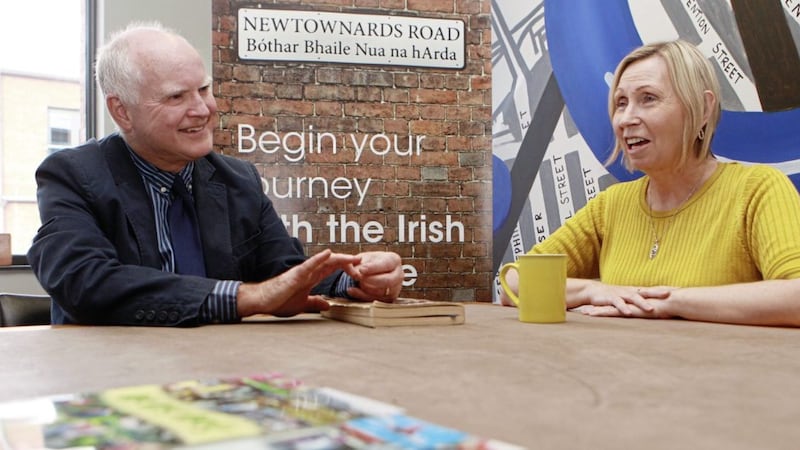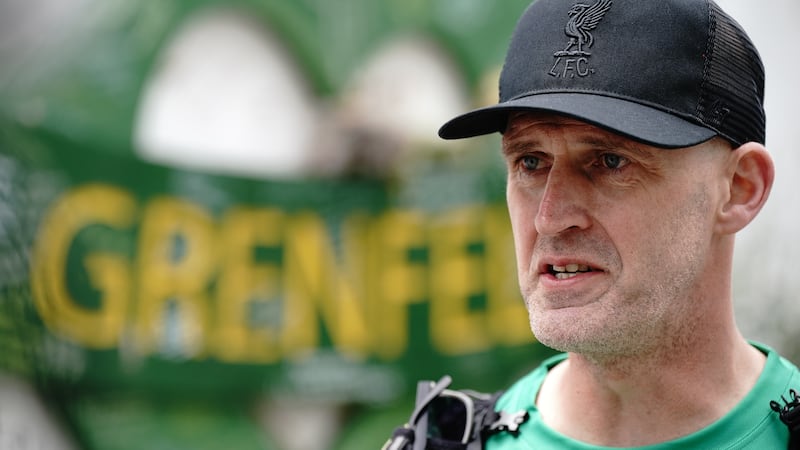A PROTESTANT Irish language activist and a historian with links to the GAA have joined forces to argue the case for an Irish language act.
Leading Gaeilgeoir Linda Ervine and Dr Francis Costello, a leading figure in Irish America based in Belfast, have said there is nothing to fear from legislation.
------------------------------------
"In language worthy of George Orwell's '1984' where 'good' was reversed to mean 'bad', some opposed to equality for the Irish language seek to paint it as an extremist plot to water down the 'Britishness' of English speakers.
The reality is nothing of the sort.
The equality sought here by a growing community that includes Catholic, Protestant and non-believers is seeking what is already in place in Scotland and Wales for the protection of Scottish Gaelic and the Welsh language. It requires no compulsion to learn Irish.
As advocates of equality legislation we welcome the warm support of the Scottish and Welsh who live in harmony in their own countries with the English language.
At this late date in the 21st century, Northern Ireland can do the same without rancour and in a spirit of generosity.
We also believe that to do this it will take effective legislation to ensure that Irish is treated with respect by the 'resolute action' required under the Good Friday Agreement and as has been recognised by international law as well as by the British and Irish governments.
Each day thousands live and work in communities with place names like Knocknagoney, Ballyhackamore, Carryduff, Shankill and Knockbreda - all names derived from the Irish language.
The recent summer programme delivered by the south Belfast Irish cultural centre 'An Droichead' was held at Union Theological College in Queen's University, a very appropriate setting for Irish language classes due to the Presbyterian Churches' history with the language and the fact that back in the 1830s they termed it their 'sweet and memorable mother tongue'.
As Pól Deeds, chief executive of An Droichead states "the Irish language didn't' reach its current level with an act but it got here through the sweat and tears of hundreds of people, working mostly on a voluntary basis to build up 'communities and support for the language".
Deeds also notes that "some 5,000 children and young people in Northern Ireland are being educated through Irish with bilingual education now accepted as a plus worldwide. There is also a growing workforce employed within the Irish language sector promoting Irish as a living working tongue".
An act would end the likelihood of any minister to place deliberate impediments to Irish language education as has often occurred.
Charges that an Irish Language Act would discriminate against members of the unionist community are unfounded.
Over the last six years the number of Protestant learners of the Irish language has steadily increased and a recent newspaper article relates the experiences of four learners from the unionist community who began classes in east Belfast without a word of Irish and are now beginning university courses.
Others are following that path having seen that within the Irish language community, unionists and nationalist alike are received in a spirit of encouragement and respect.
Ciaran White, senior lecturer in law at Ulster University, underscores that legislation would provide a secure footing from which to remove politicisation.
"An act would give a legally enforceable basis to the status of Irish", he notes "which would mean that in the event of a dispute about the implementation of the act, Irish language users could seek the opinion of the High Court on that issue".
"Likewise it would also give concrete expression to the UK's obligations under the European Charter while an act of the assembly would continue to remain in effect notwithstanding changes in the identity of the occupant of a ministerial chair".
Indeed it might be asked if opponents of equality for the Irish language can travel with a UK passport that cites the name of Northern Ireland in the Scots Gaelic 'Rioghachd Aonaichte Bhreatainn' could they not likewise abide its name appearing in Irish Gaelic?
In asking for basic fairness those in the Irish language community and their supporters do not seek to threaten anyone else's culture.
The growing number of men, women and children who are learning Irish are also developing an understanding of its richness and deep roots in our communities.
The language belongs to all of those who chose to make it their own regardless of colour, creed or country of origin.
- Linda Ervine is head of the Turas Irish language project at the East Belfast Mission and Dr Francis Costello is a historian and a founder of the Sharing the Past Project."





